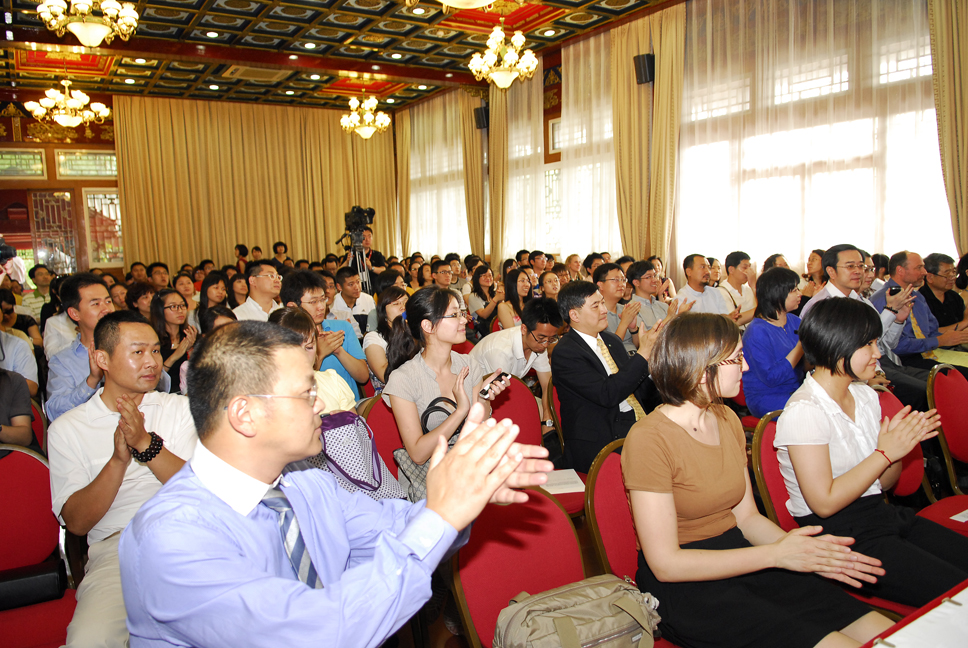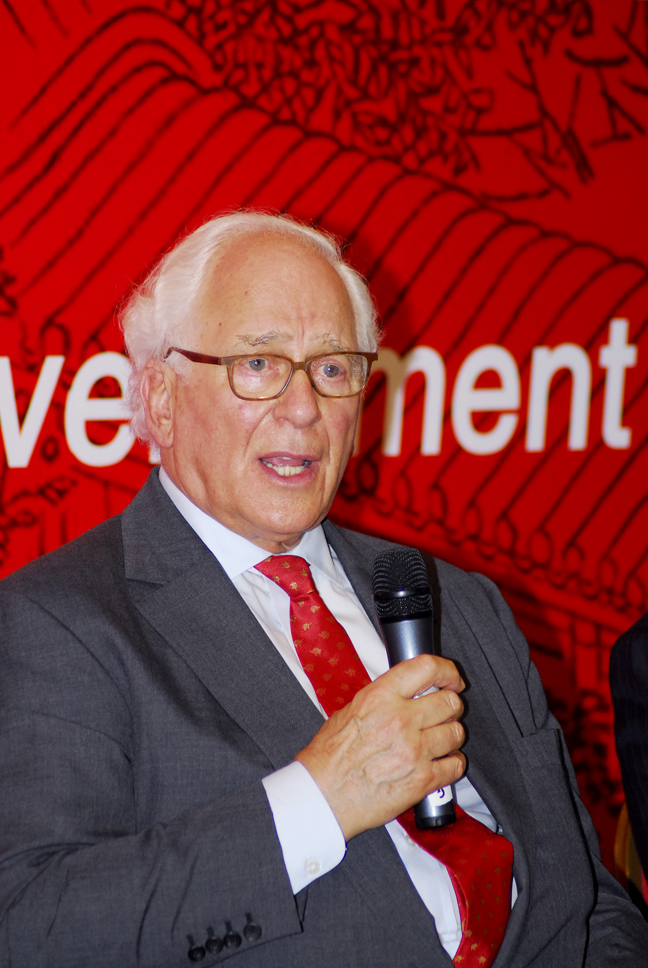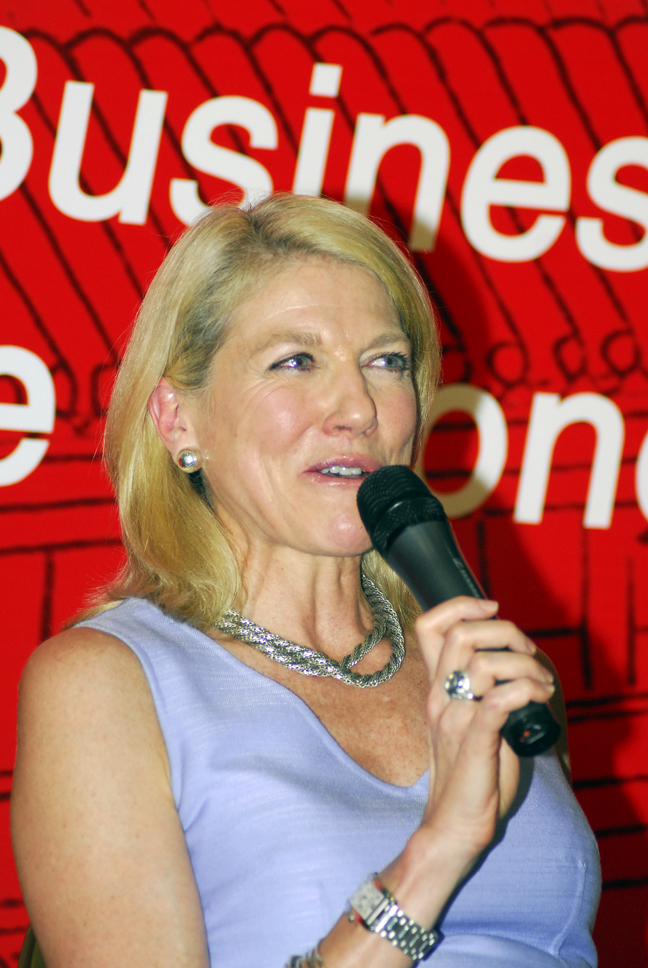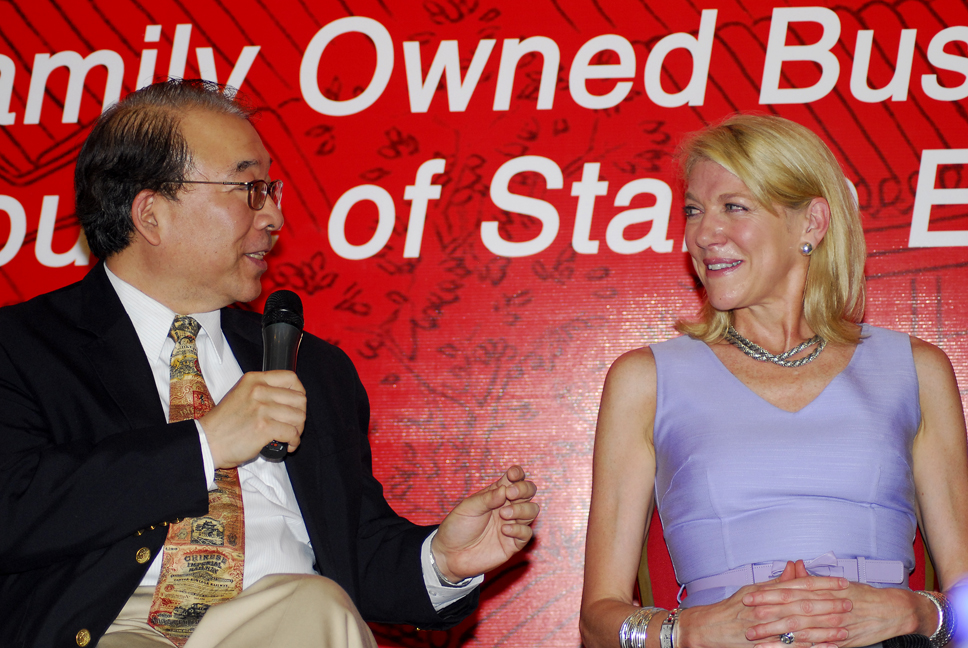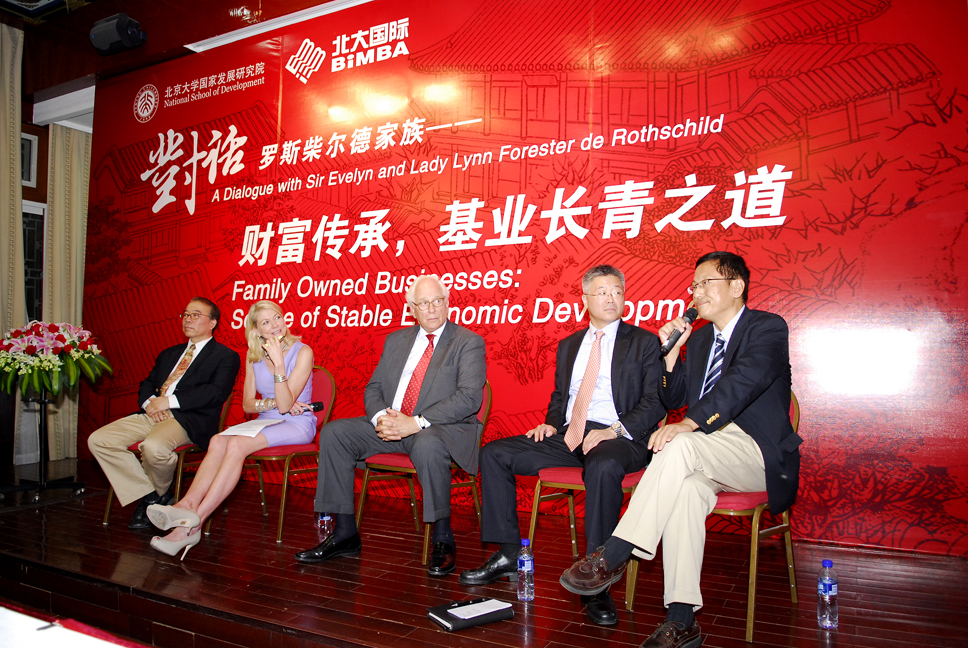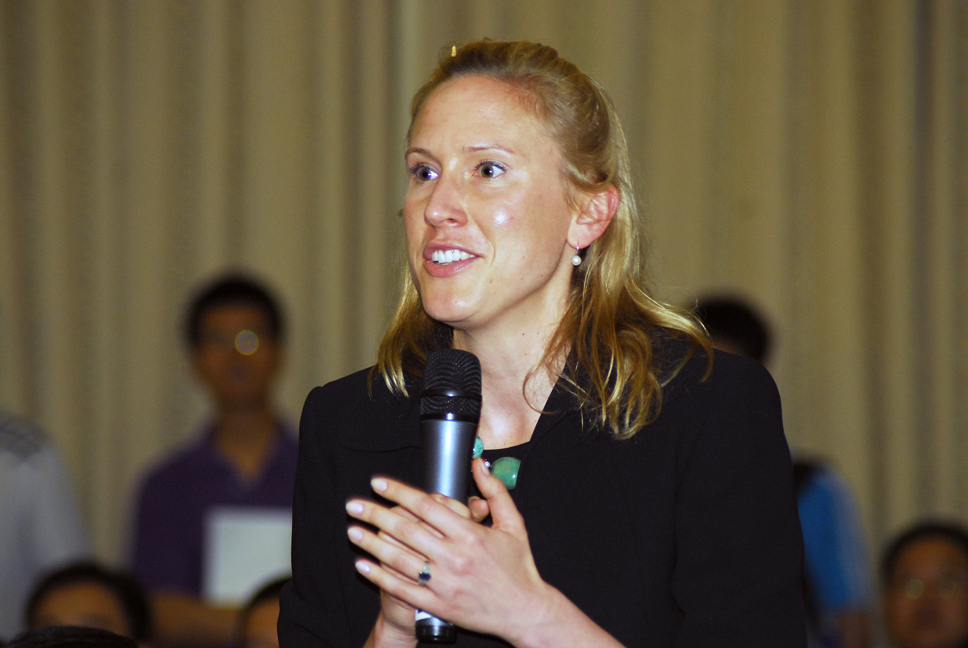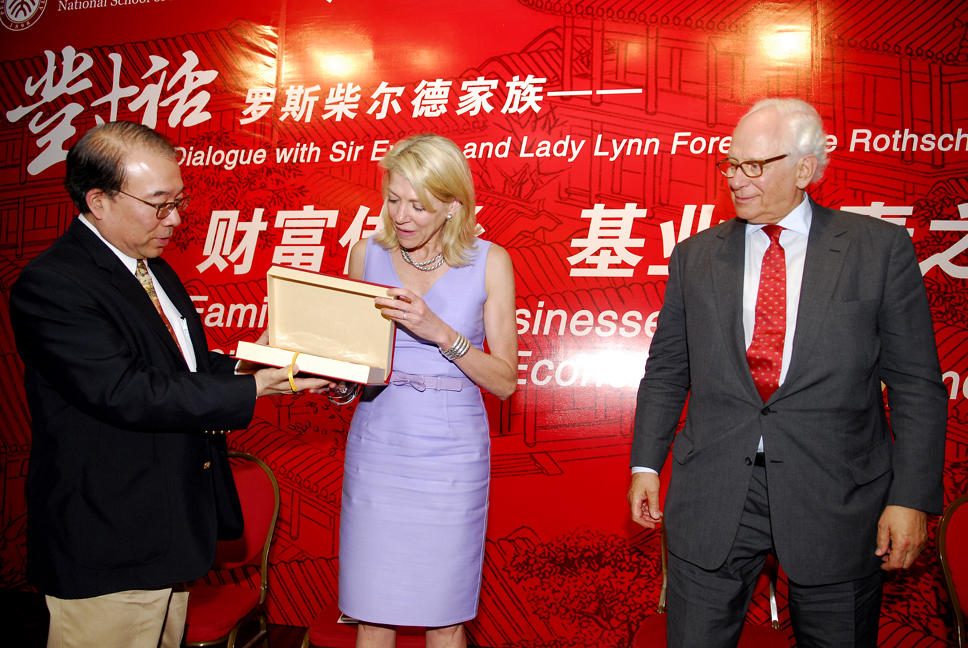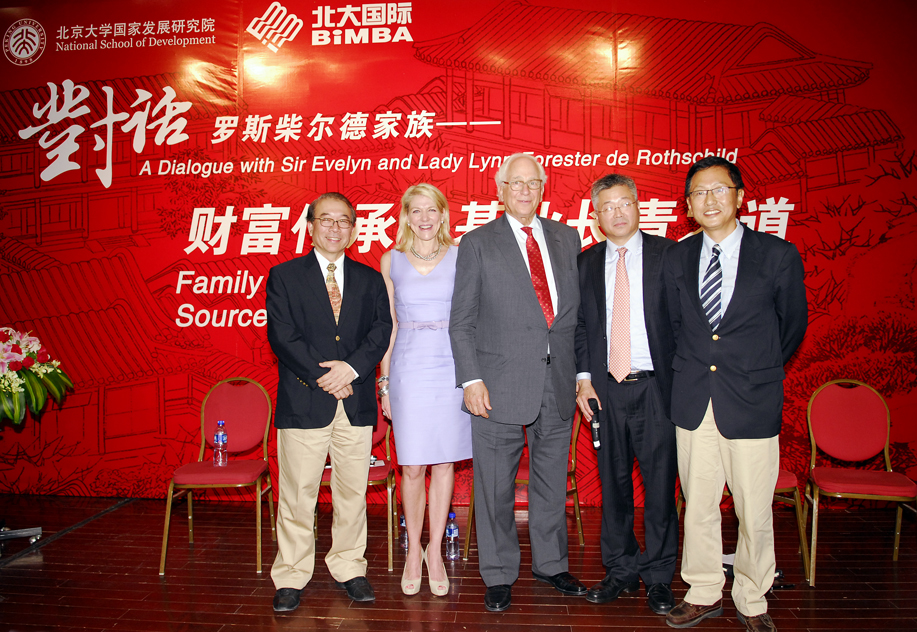
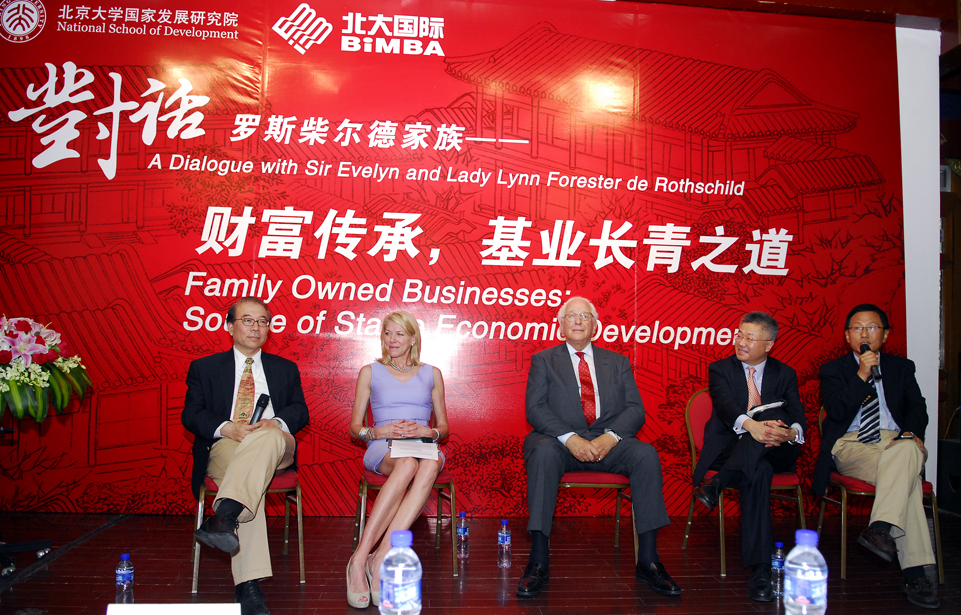
On June 4th, the National School of Development at Peking University welcomed Sir Evelyn Rothschild, Lady Lynn Forester de Rothschild, Professor Deming Huo, and Sitao Xu, Chief Representative of the Economist Group, China Director of Global Forecast to join with Peking University students and alumni in a discussion on the history of the Rothschild family business, the lessons learned, and ideas about the strategies, values and roles of successful family-owned businesses in today’s global economy. The dialogue was hosted by Professor Yang Zhuang, and attracted over 200 audiences.
Sir Evelyn Rothschild, the seventh generation of the Rothschild family, first delineated a concise history of his family. It started in the Frankfurt at the end of 18th century at the will of five brothers. Sir Rothschild’s great great grandfather remained in Frankfurt, while the other four shot for Vienna, London, Naples, and Paris respectively. Together the five brothers created a powerful network which was to develop into one of the world’s most influential financial empire. The Rothschild’s impact extended well beyond economic realm; it supported Duke of Wellington in Waterloo, and even endorsed Brazil’s independence. Sir Evelyn mentioned that the greatest challenge in building family-owned business was how to pass it from the first creator to the second. He reasoned that parents are the key in the process, for they set up standards, especially ethics, for their offspring. Sir Rothschild said that family business was like a community, or a fraternity, where people devote themselves to caring and helping each other. Individuals shall always be aware of their identity as part of a group. Finally, Sir Rothschild shared Rothschild family’s motto: Concordia, Integritas, Inustria (Latin: Concordance, Integrity, Industry).
Lady Rothschild was the next to share her life story. She mentioned that when she got her first job, her goal was to make forty million dollars. But her employer (Bill Gates) gave her one of the best advice she ever received: instead of money, one should “start with your dream, start with your vision. Wake up every day and pursuit that vision. Always hold on to who you are, and forty million dollars will take care of itself.” Lady Rothschild introduced to the audience family-owned business’ growth from a global scope. Statistics showed that family-owned business outperformed public-owned industry, in terms of both return rate and GDP contributions. Her explanations for the differentiated performance were that family-owned business cared more about their reputation, and were more inclined to take long-term perspective. Of course, family-owned business had their trouble too, which took shape in family members’ lack of interest in the business. Data indicated that no more than 2% family business can survive up to the fourth generation.
After that, professor Huo delivered a short comment. He said that the necessary cause for creating family-owned business was industrialization. China did not complete this process until late 1970s, and thus rich family hardly lasted over three generations on Chinese history. Professor Huo also pointed out that the sufficient cause for building successful family-owned business might lie in the Rothschild family’s motto: Concordia, Integritas, Inustria. Upon this, Lady Rothschild added that the longevity of a family business correlated strongly with how much the family gave back to the society. She used Rothschild family and Rockefeller family as example to illustrate the importance of philanthropy.
During the Q & A session, when asked about how the family could ensure succession between generations, Sir Rothschild emphasized again the importance of parents as role models. He also pointed out that offspring should not be forced into the business, and if they indeed took no interests, outsiders might be needed; as long as the core values were still observed by family members, it wouldn’t threaten the business to have an outsider as leader. Anyway, the Rothschild family had been rather lucky on this point, for although not every kid was interested in business, whenever there was one needed, there would be one.
Sir Xu mentioned a survey he conducted on his leadership class, which showed that over 80% of Chinese young people wished to enter large enterprises, instead of starting their own business. Lady Rothschild expressed her surprise at hearing this. She argued for the importance of acceptance to failure. “Life is short, so why not give it a try?” Lady Rothschild again stressed the value of vision and social responsibility.
When asked about the investment prospect in China, Sir Rothschild expressed his confidence in Chinese energy business, and said that the key was to find the Moore’s law within energy field. Sir Rothschild mentioned that although most investors had focused on Chinese east coast, he believed that middle China enjoyed untapped potentials, and shall yield fruitful results if properly exploited. Sir Xu added that the Economist Group would single China out as an individual statistical unit, indicating a general optimism to the country’s future development.
